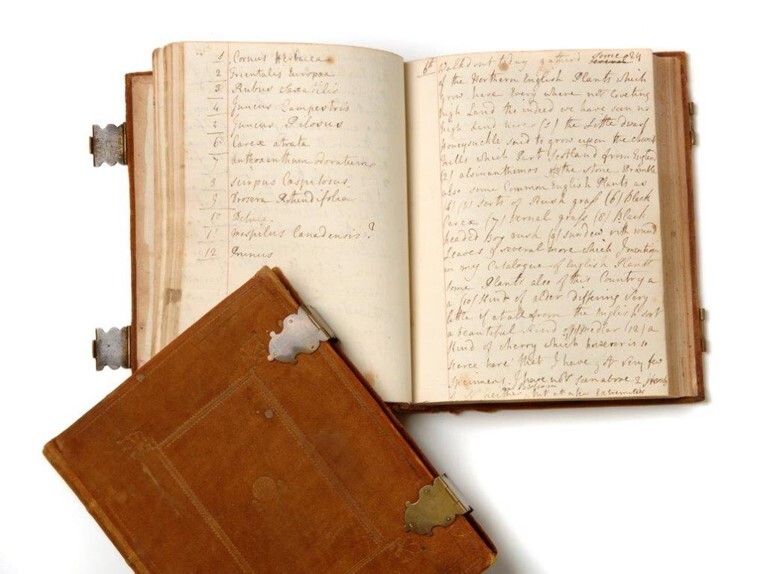These two manuscript books of Sir Joseph Banks' in his own handwriting provide an account of his voyage to Newfoundland and Labrador then concluding in Lisbon, commencing 7 April 1766 and ending on 17 November 1766. Both journals are in small quarto.
The first journal, describing the voyage to Newfoundland and Labrador, (both British possessions) was written while Banks was on the HM Niger whose mission was to keep order on the rich cod fishing grounds where several nations jostled for their share of the catch. Landing initially at St Johns, Newfoundland Banks wasted no time in collecting specimens of plants and animals and getting to know something of the indigenous population. Banks then sailed on to Chateau Bay, Labrador where he continued exploring and collecting. The Niger, with Banks on board, sailed from St Johns on 28th October 1766 and arrived in Lisbon 17th November 1766.
At the same time that Banks was at St Johns, James Cook was in the area as master in command of HM Brig Grenville surveying the coasts of Greenland and Labrador. It is likely that the two met, and this may have been the start of the relationship which was to continue several years later when they sailed around the world together on HM Bark Endeavour and charted the east coast of Australia.
The second journal, Visit to Lisbon, records Banks' 6 weeks stay in Lisbon on the return journey to London. Here again he was able to collect and preserve botanical specimens. He also became well known in social circles and, cutting a somewhat dashing figure, was apparently very popular with the ladies. Banks also made contact with local naturalists and was admitted to the local Natural History Society.
